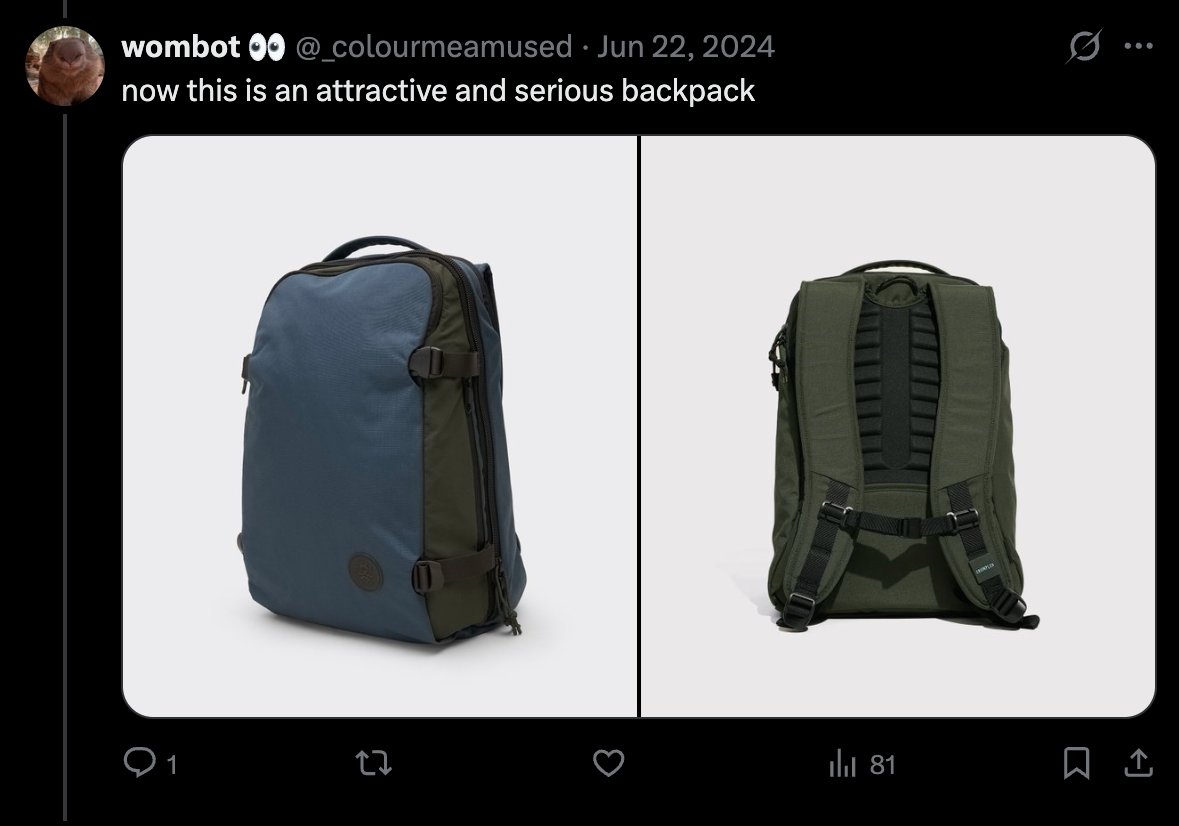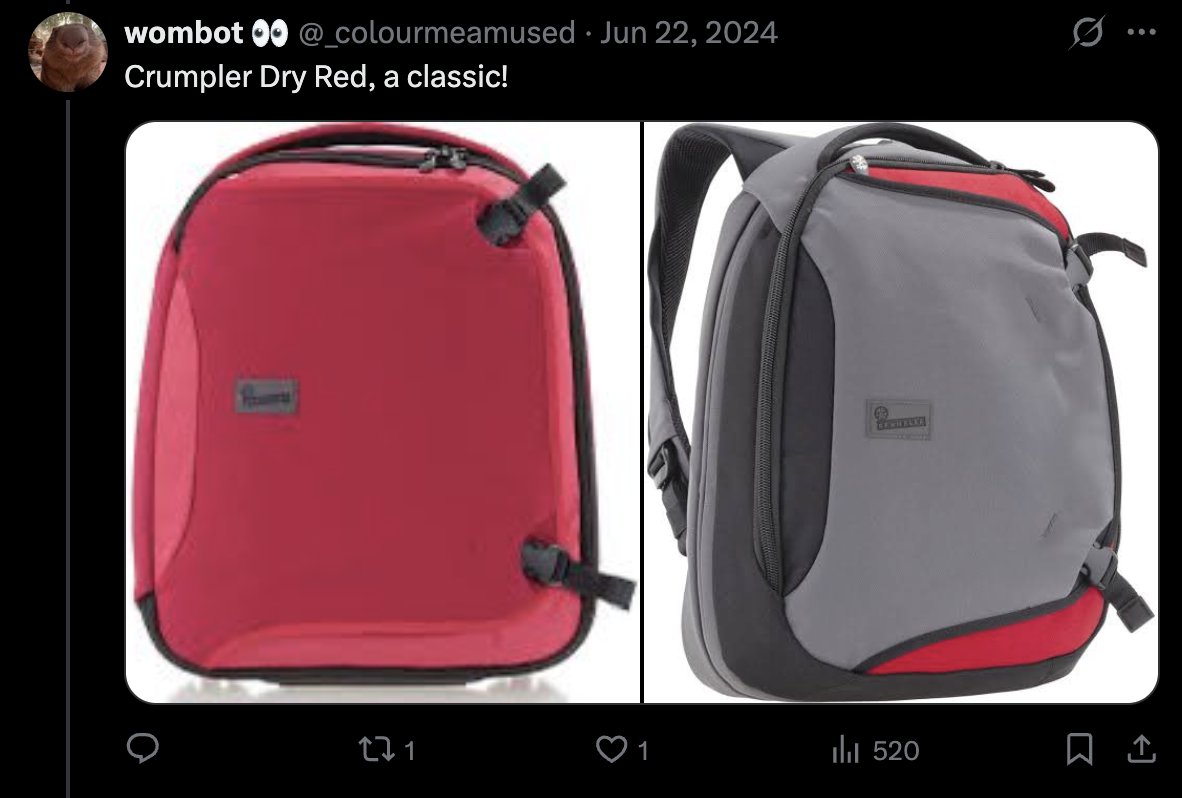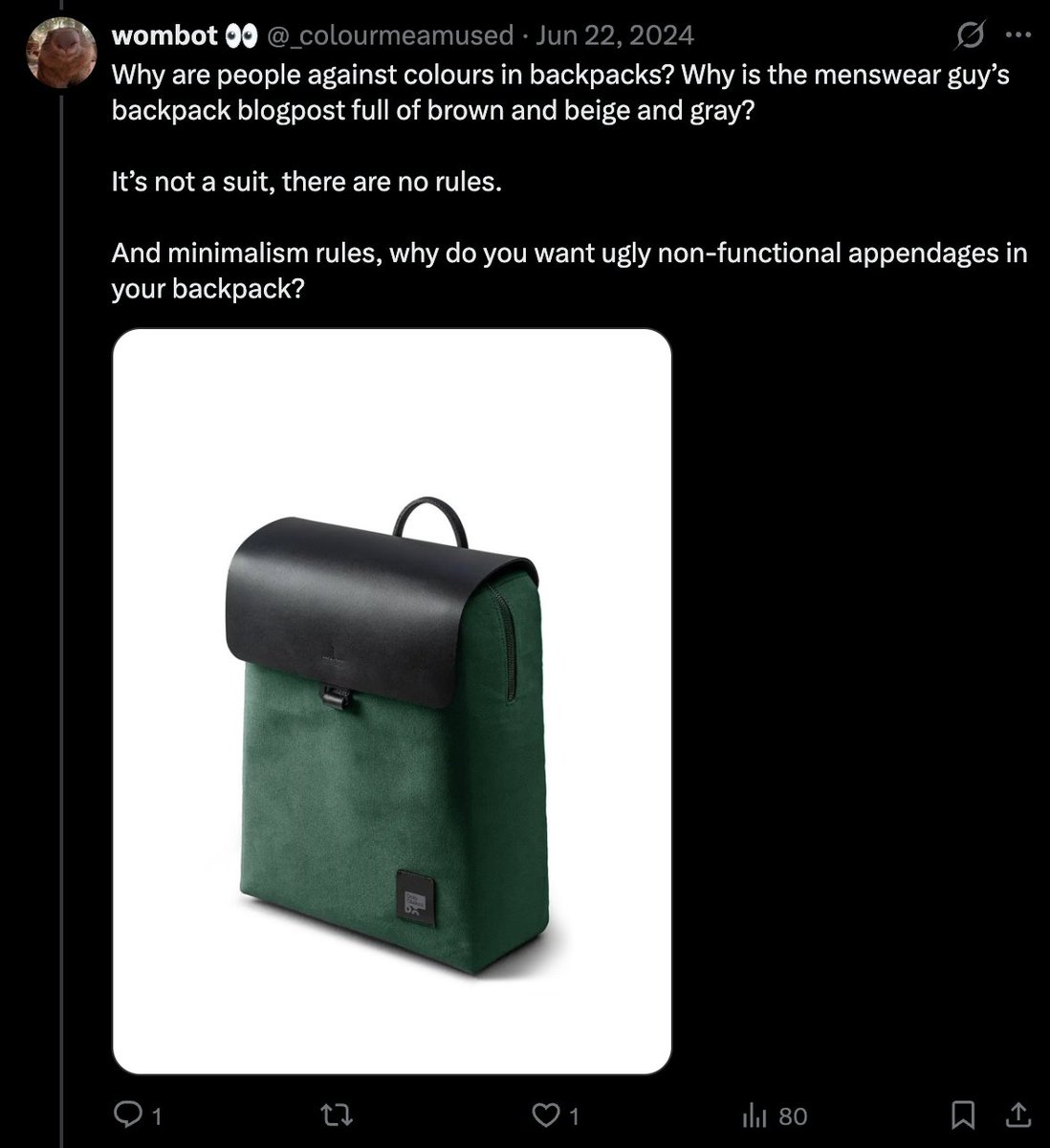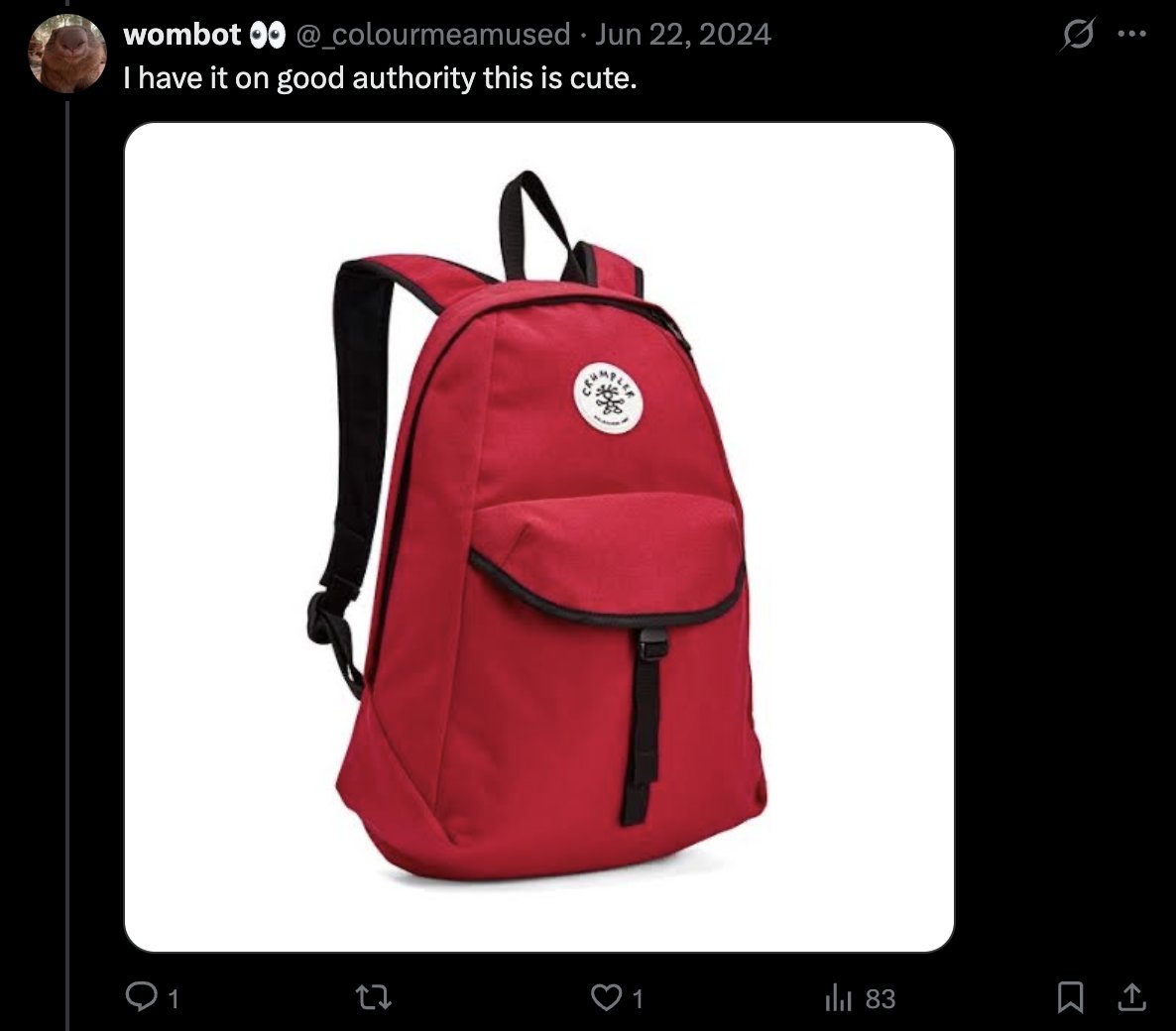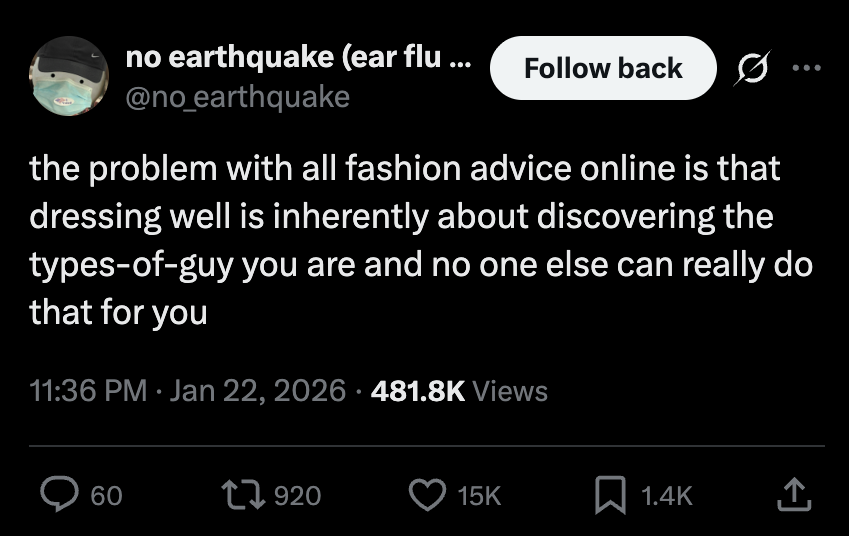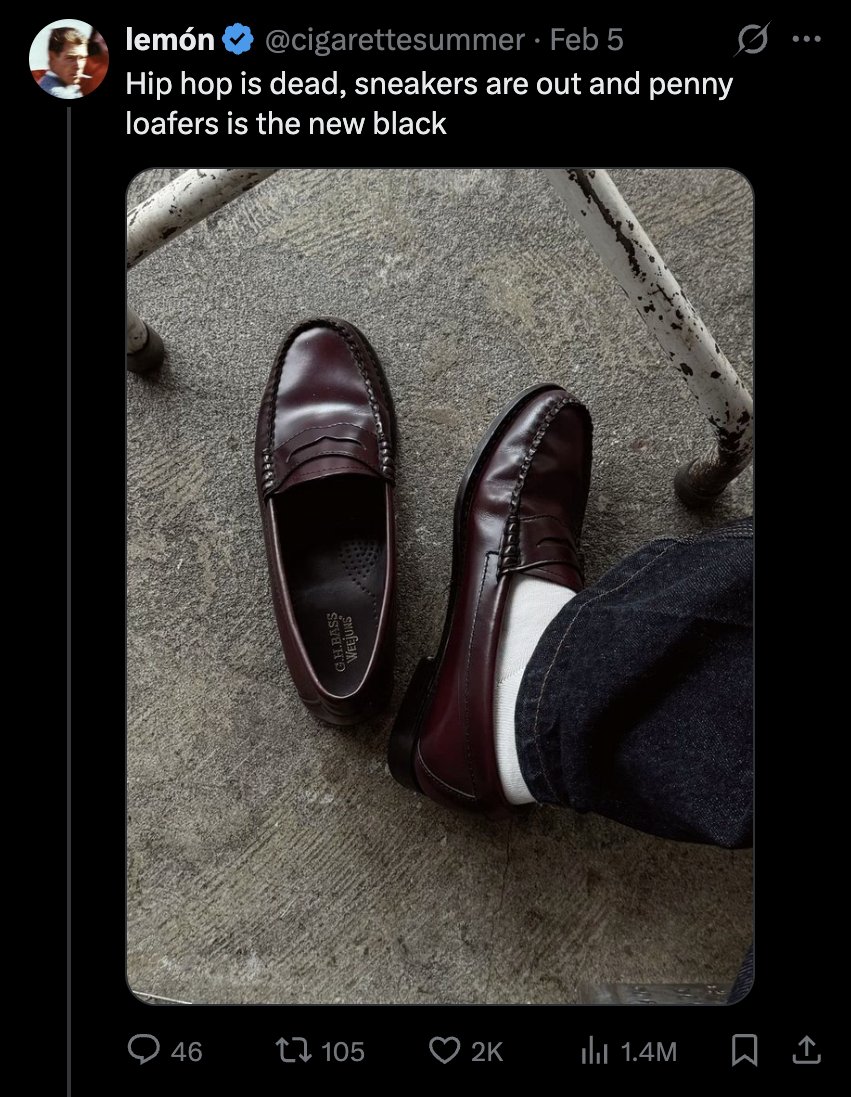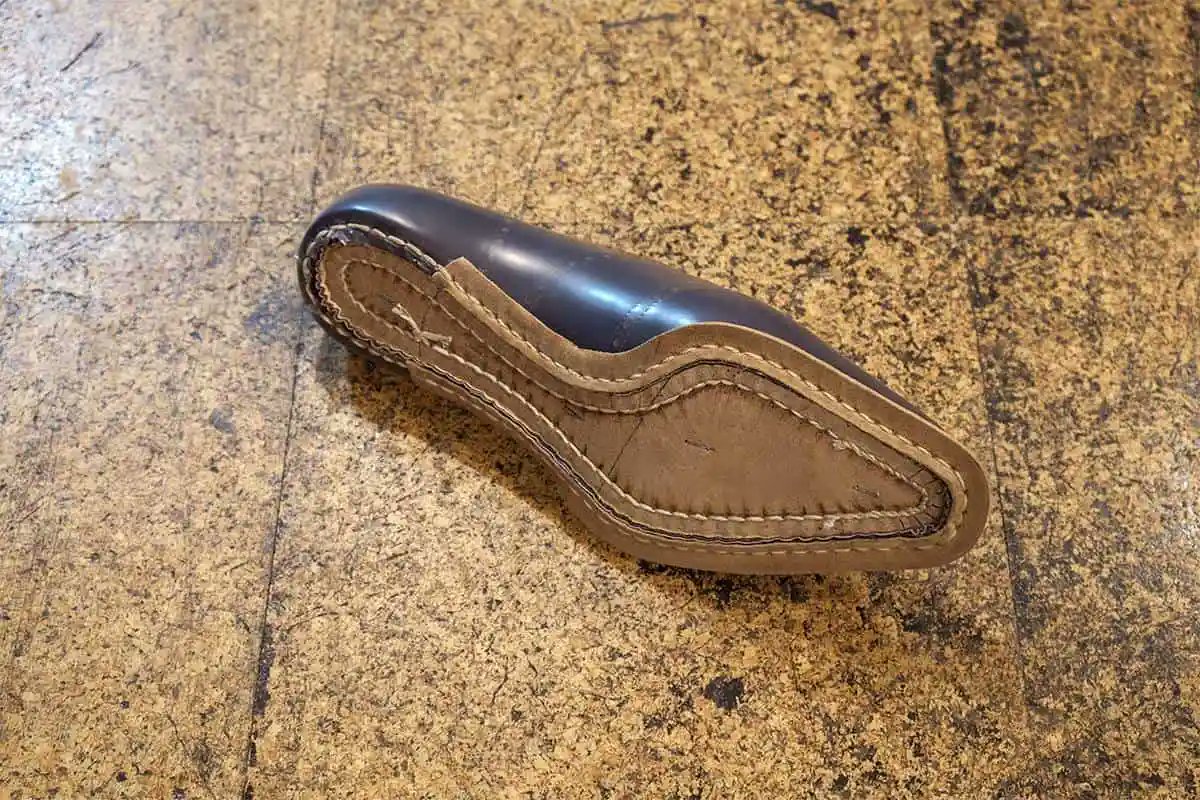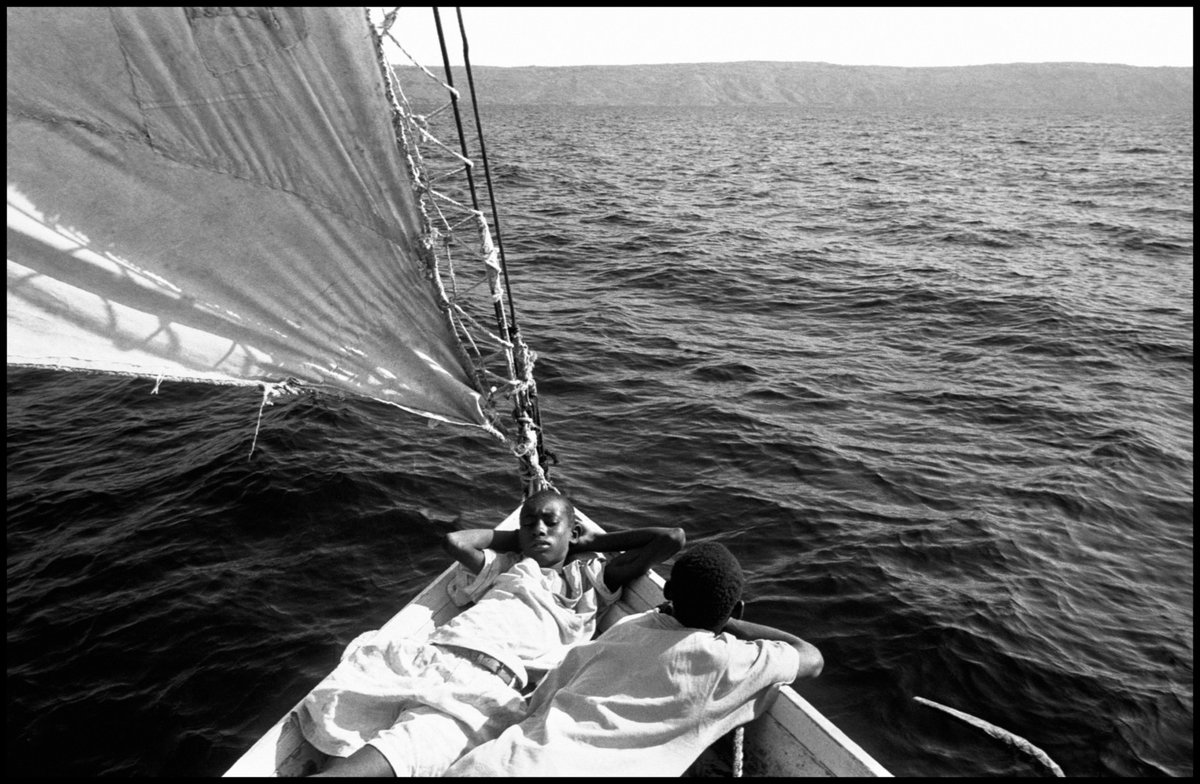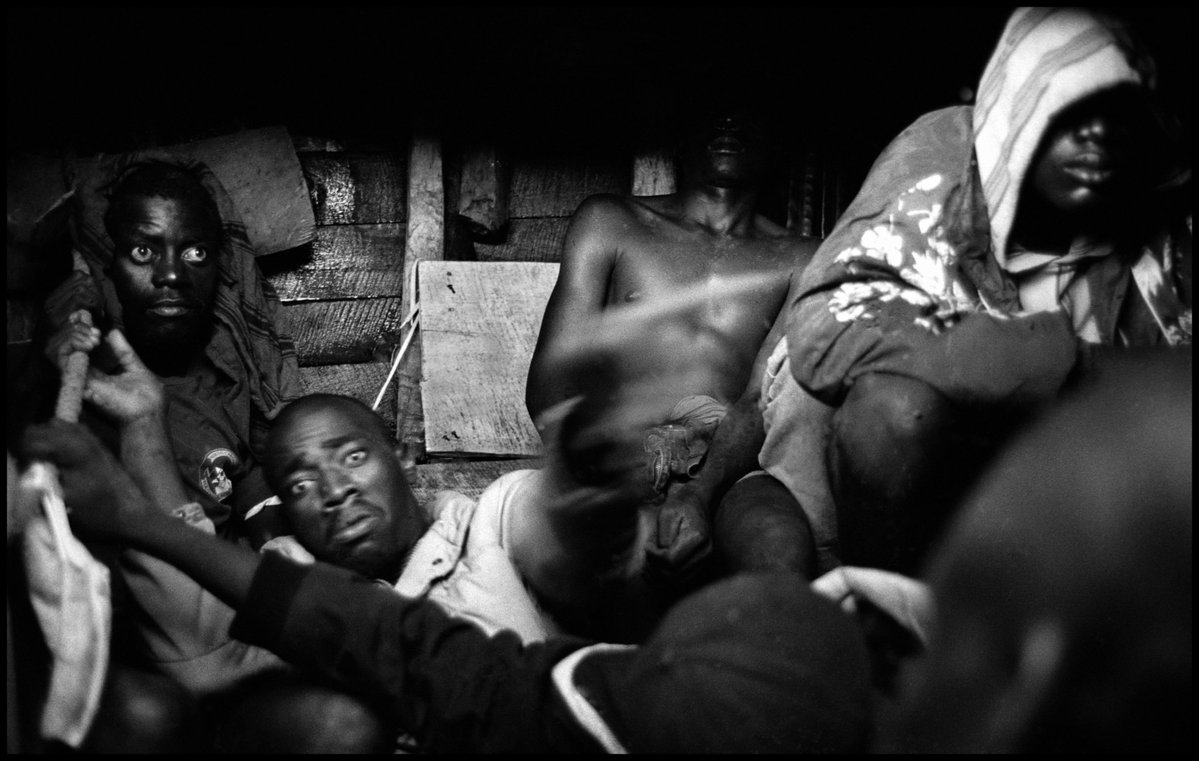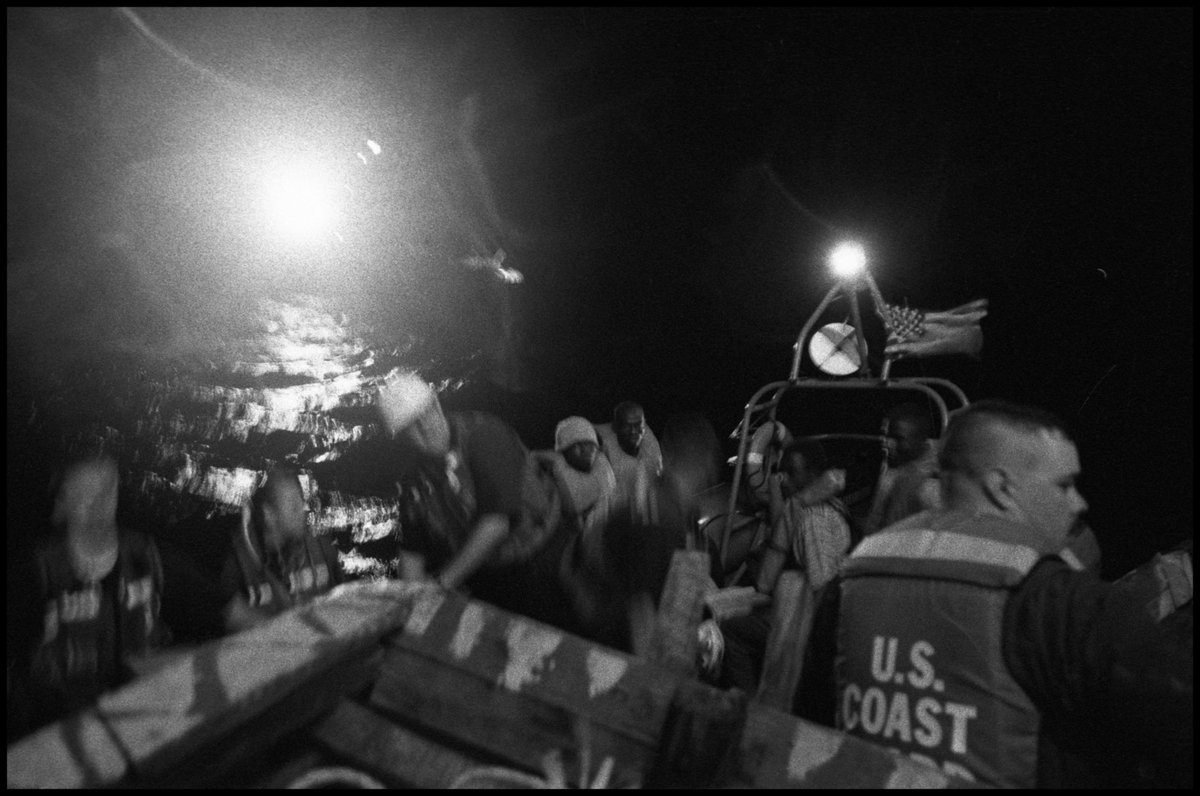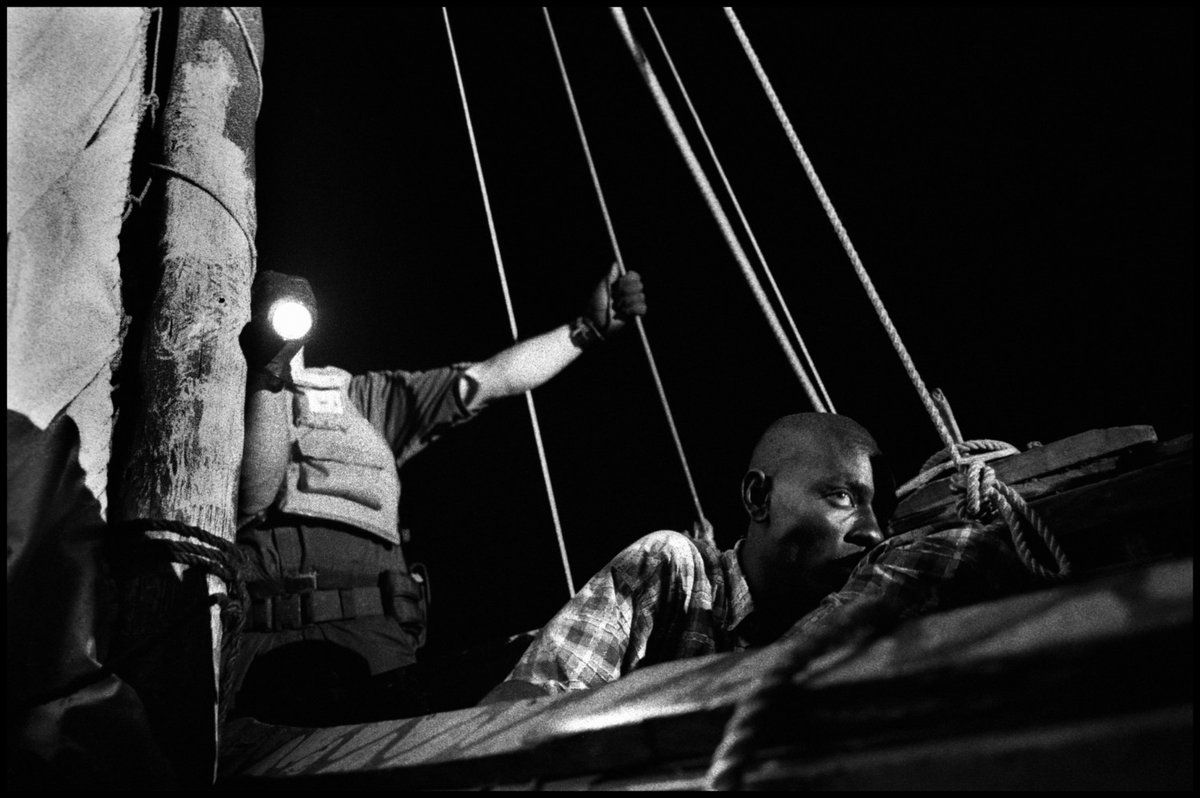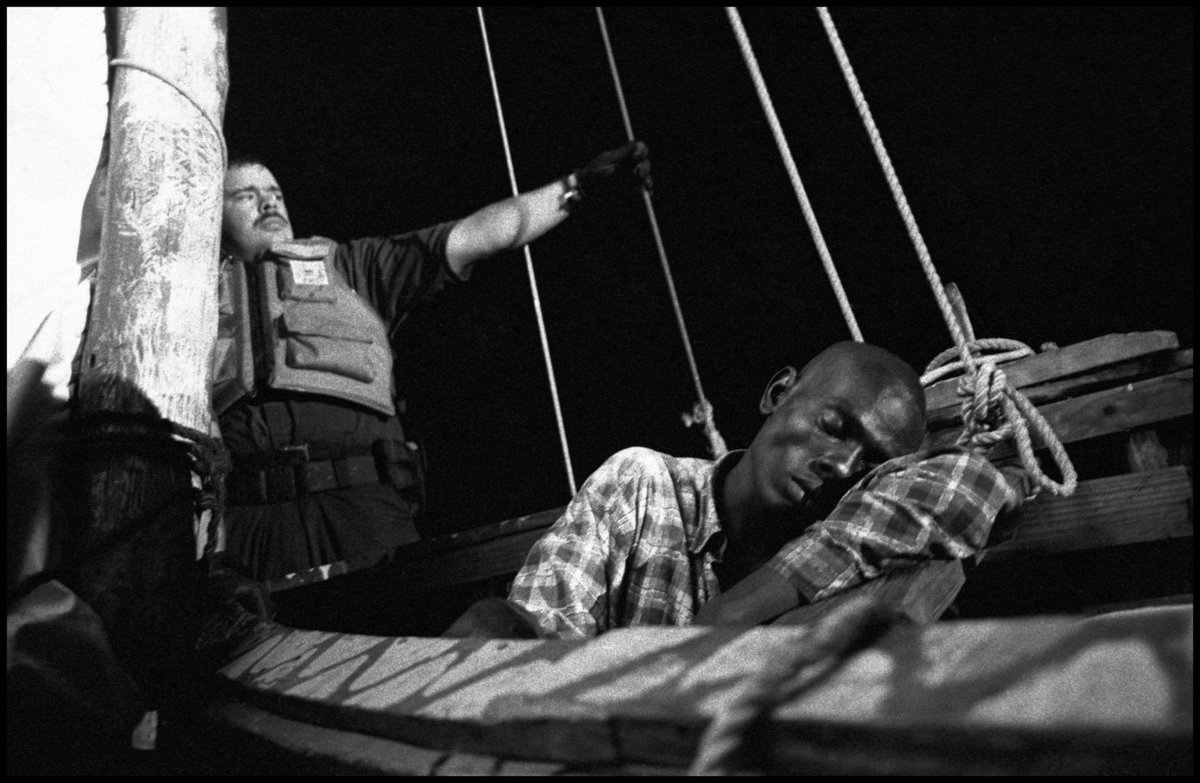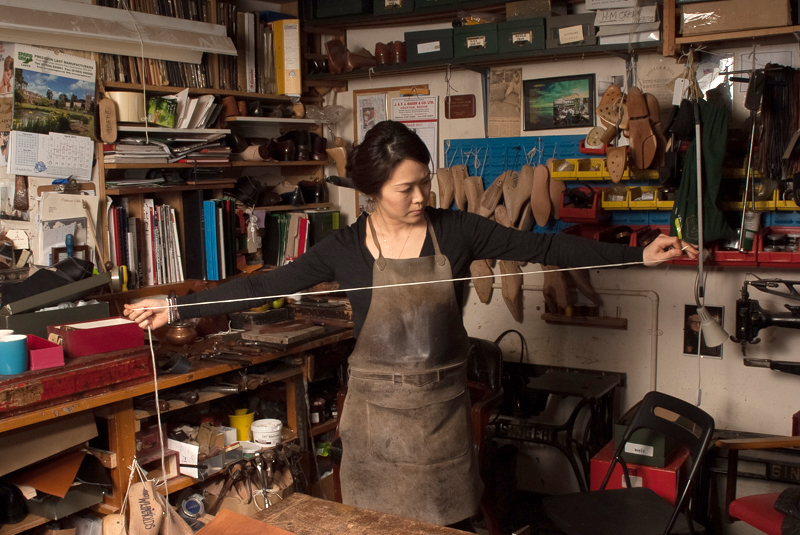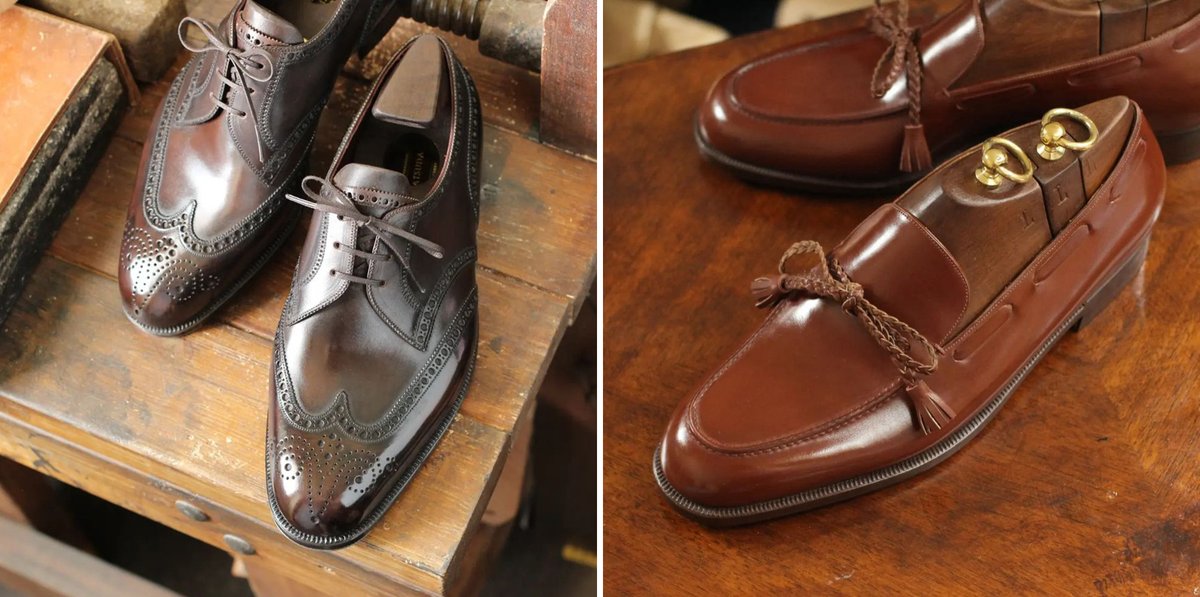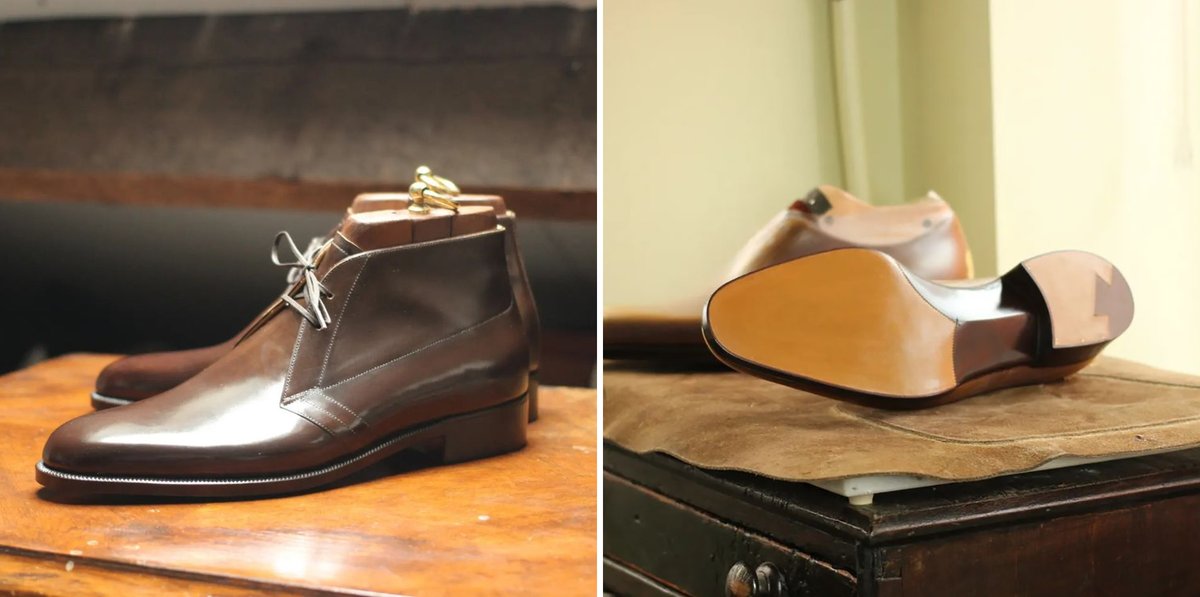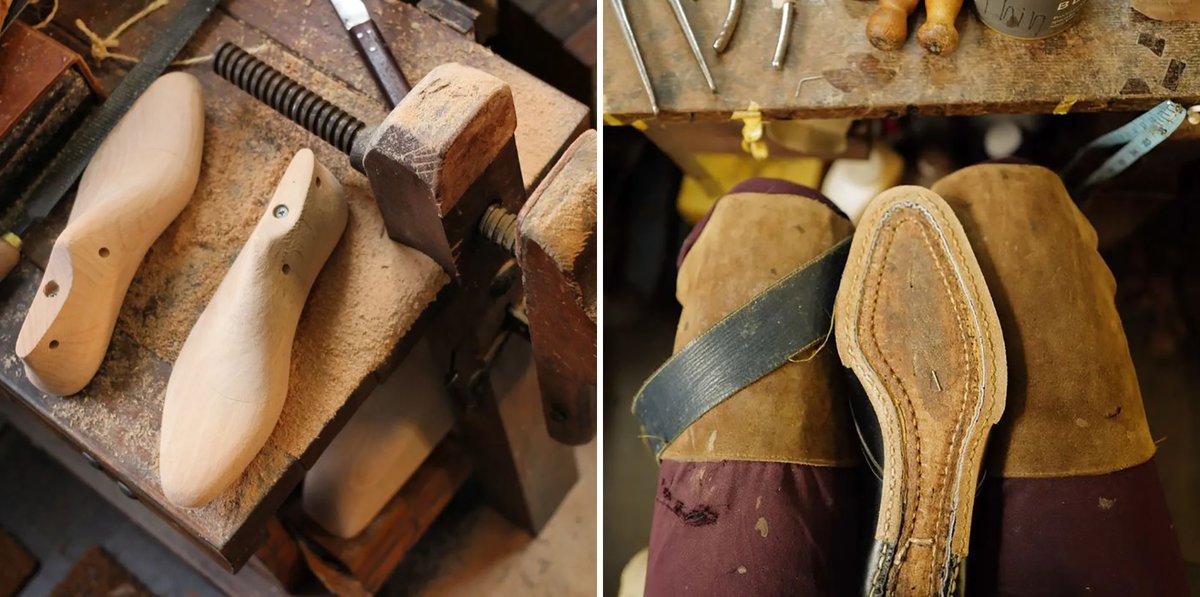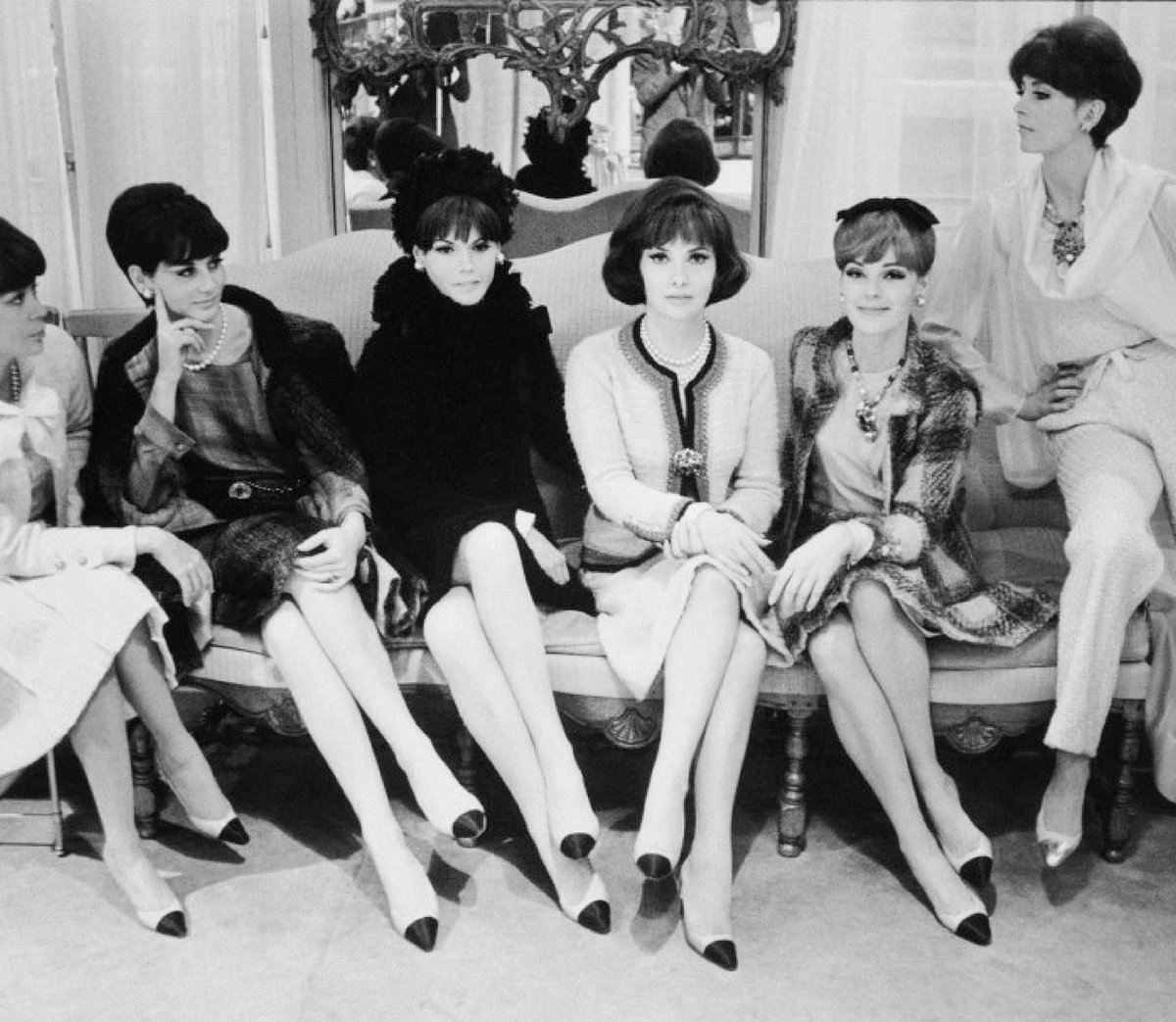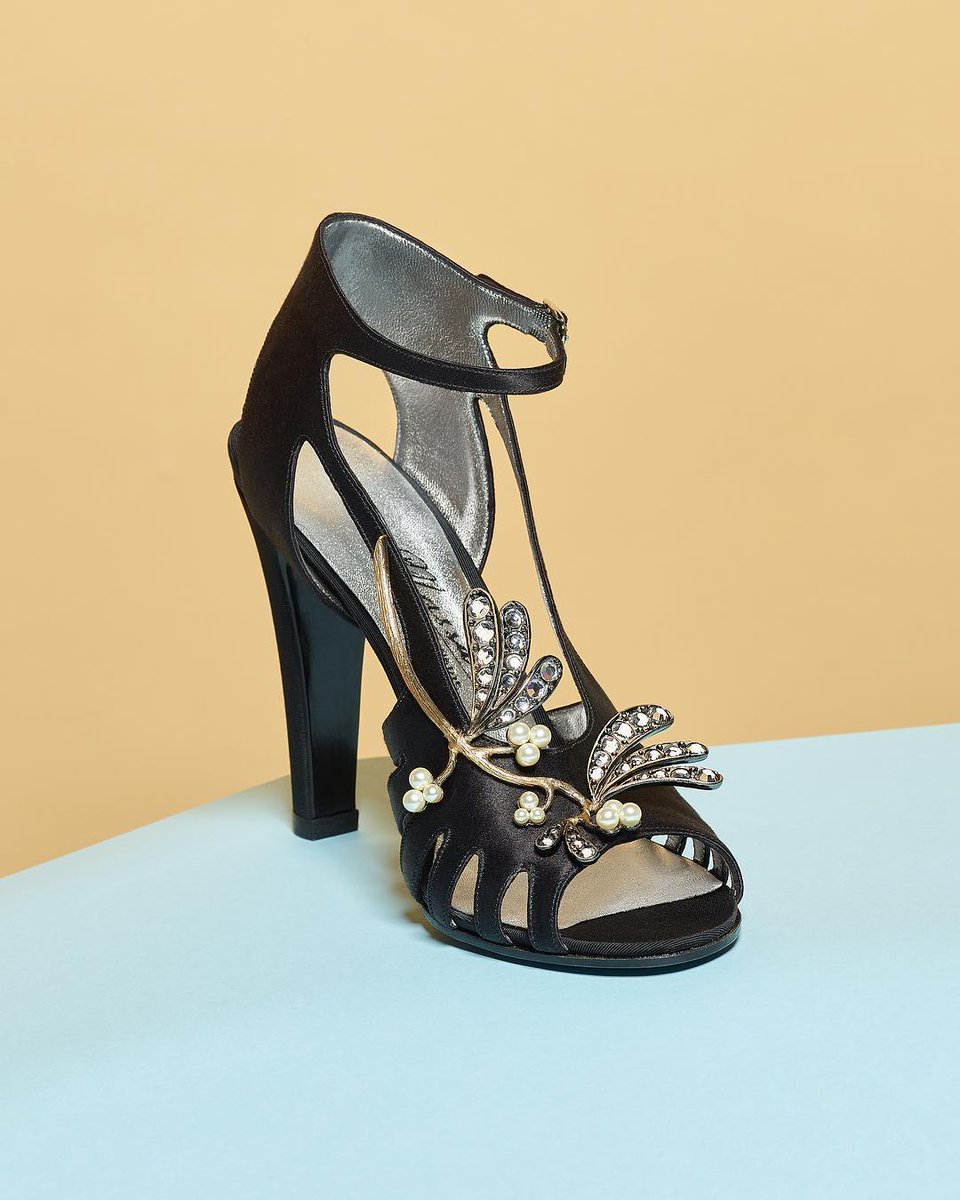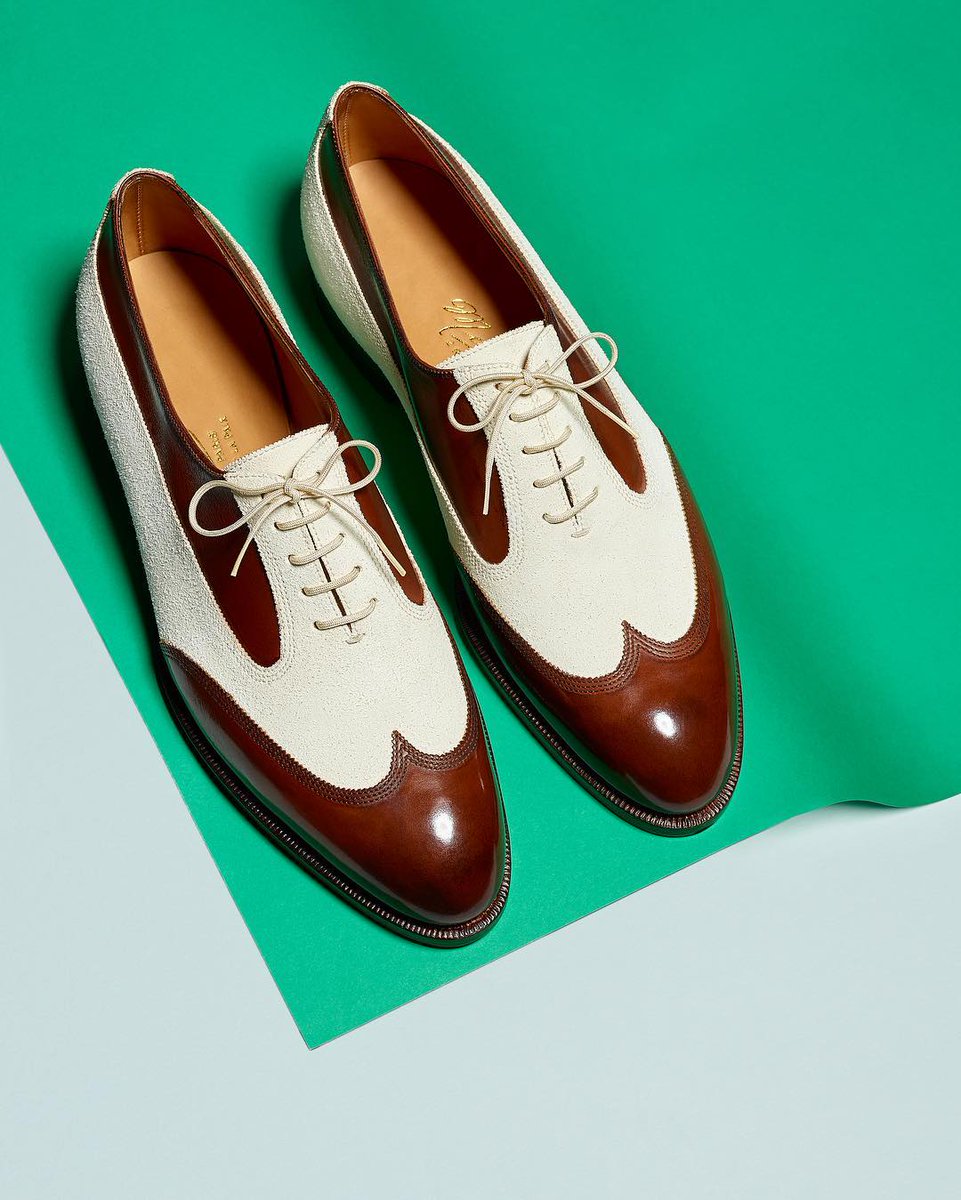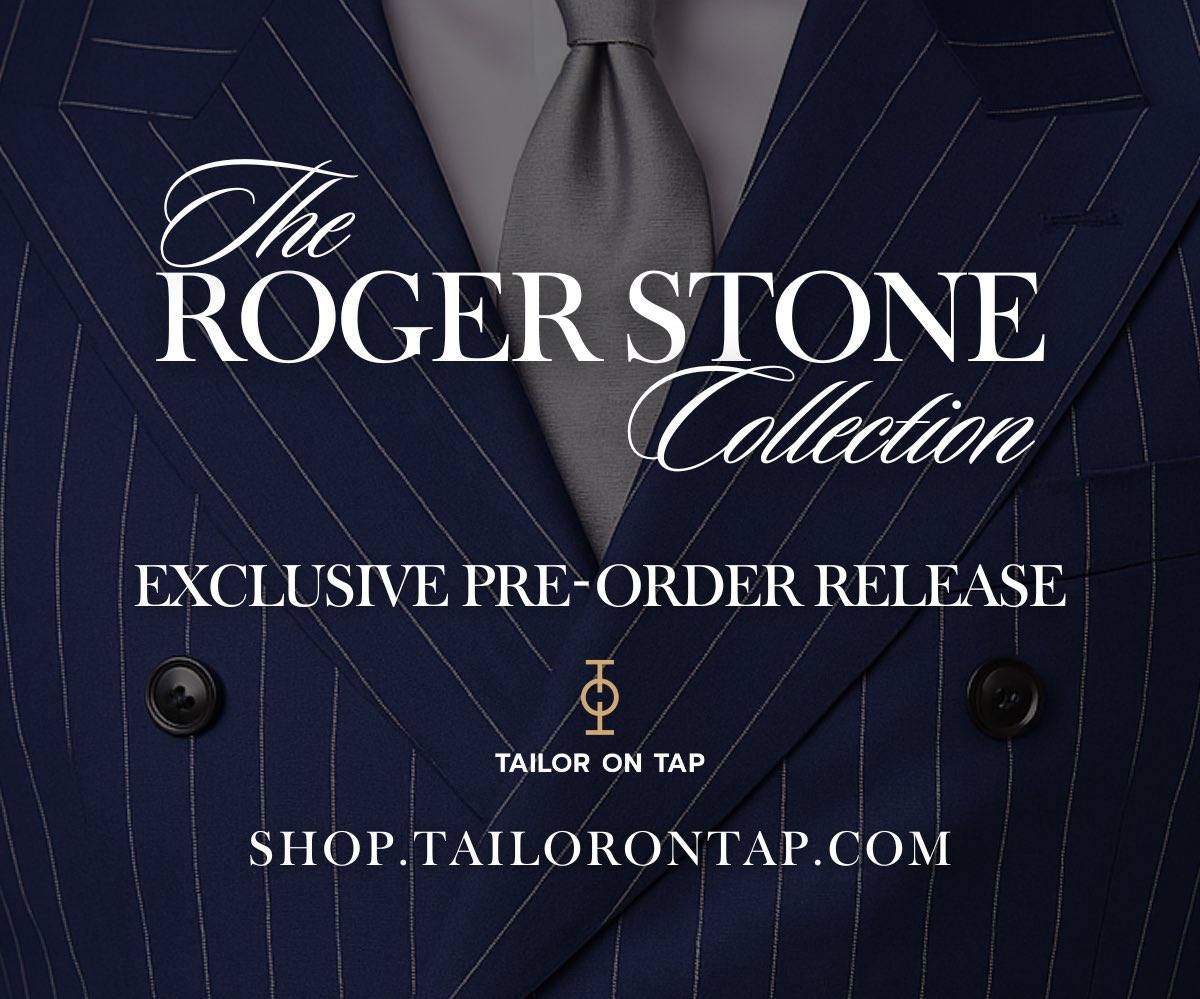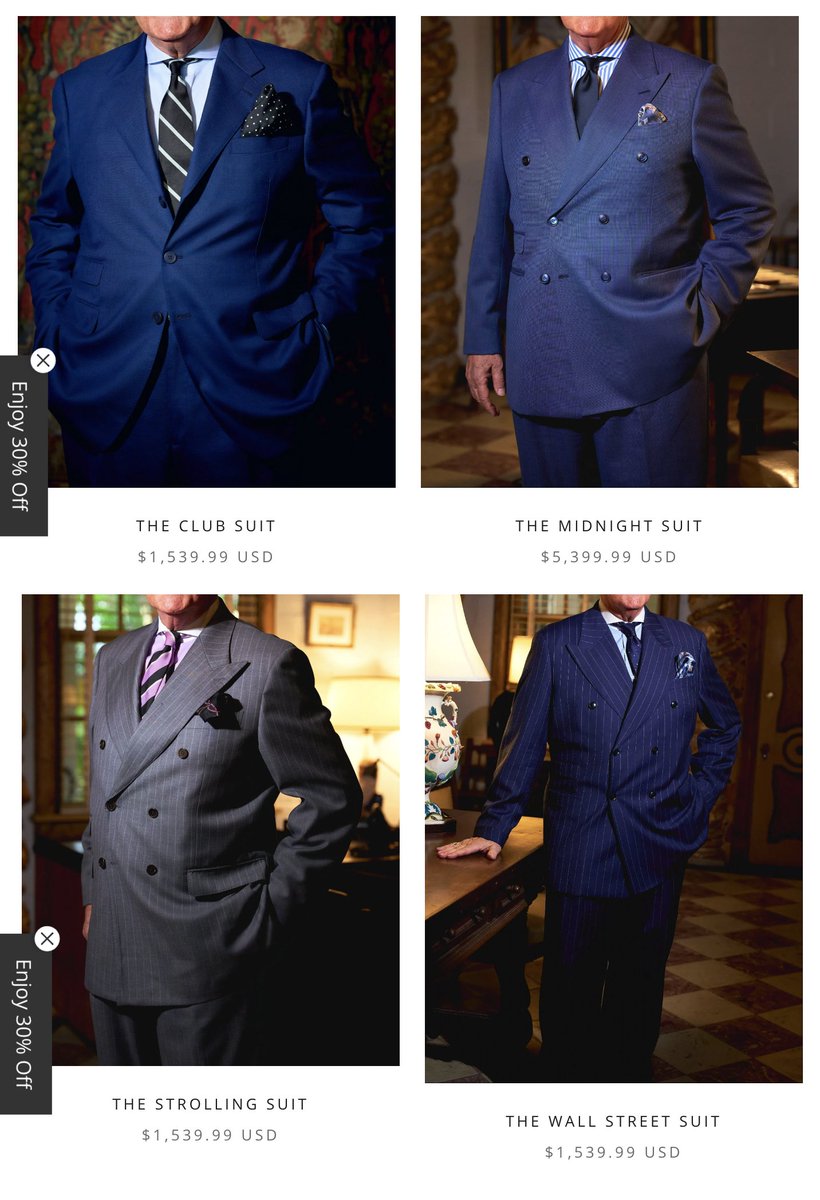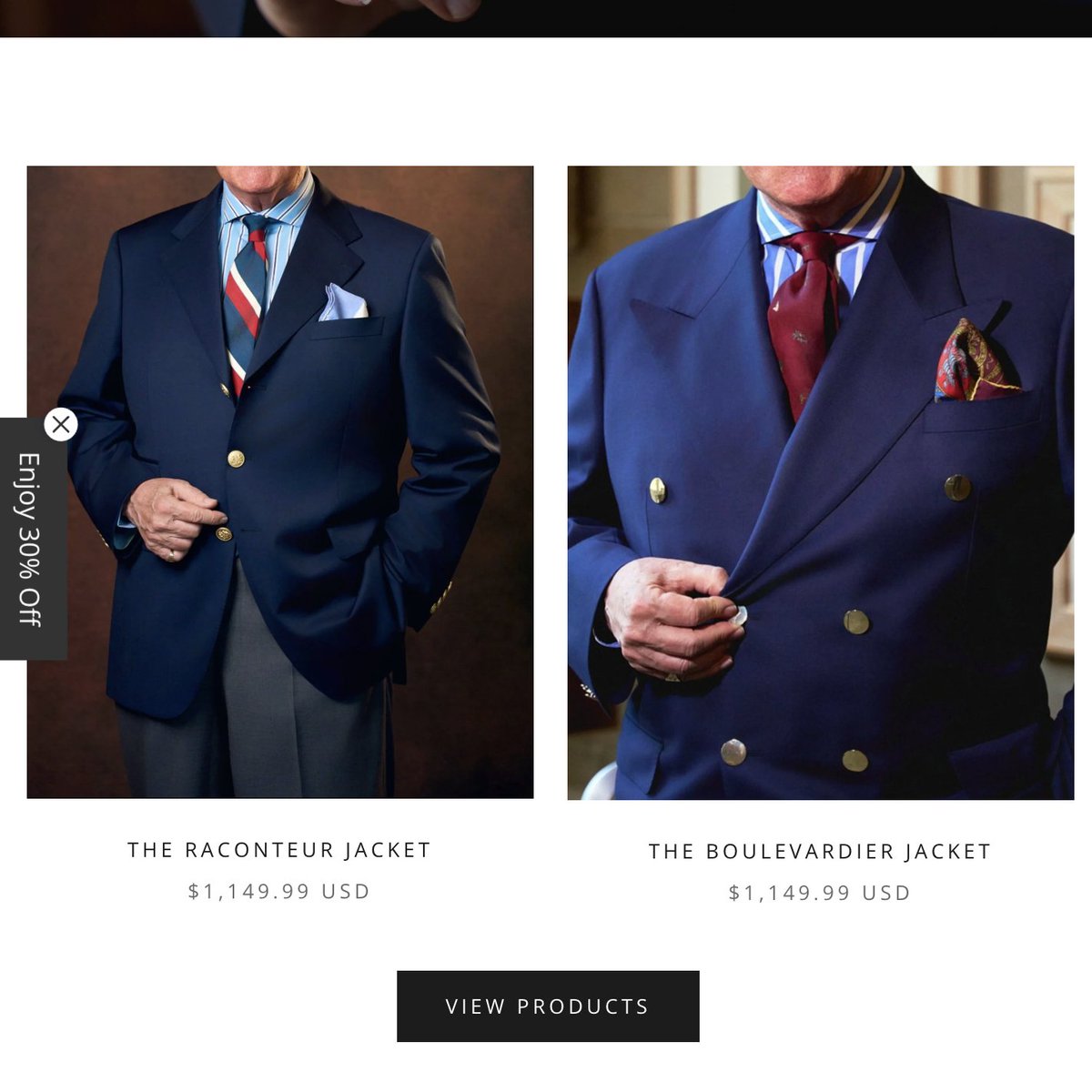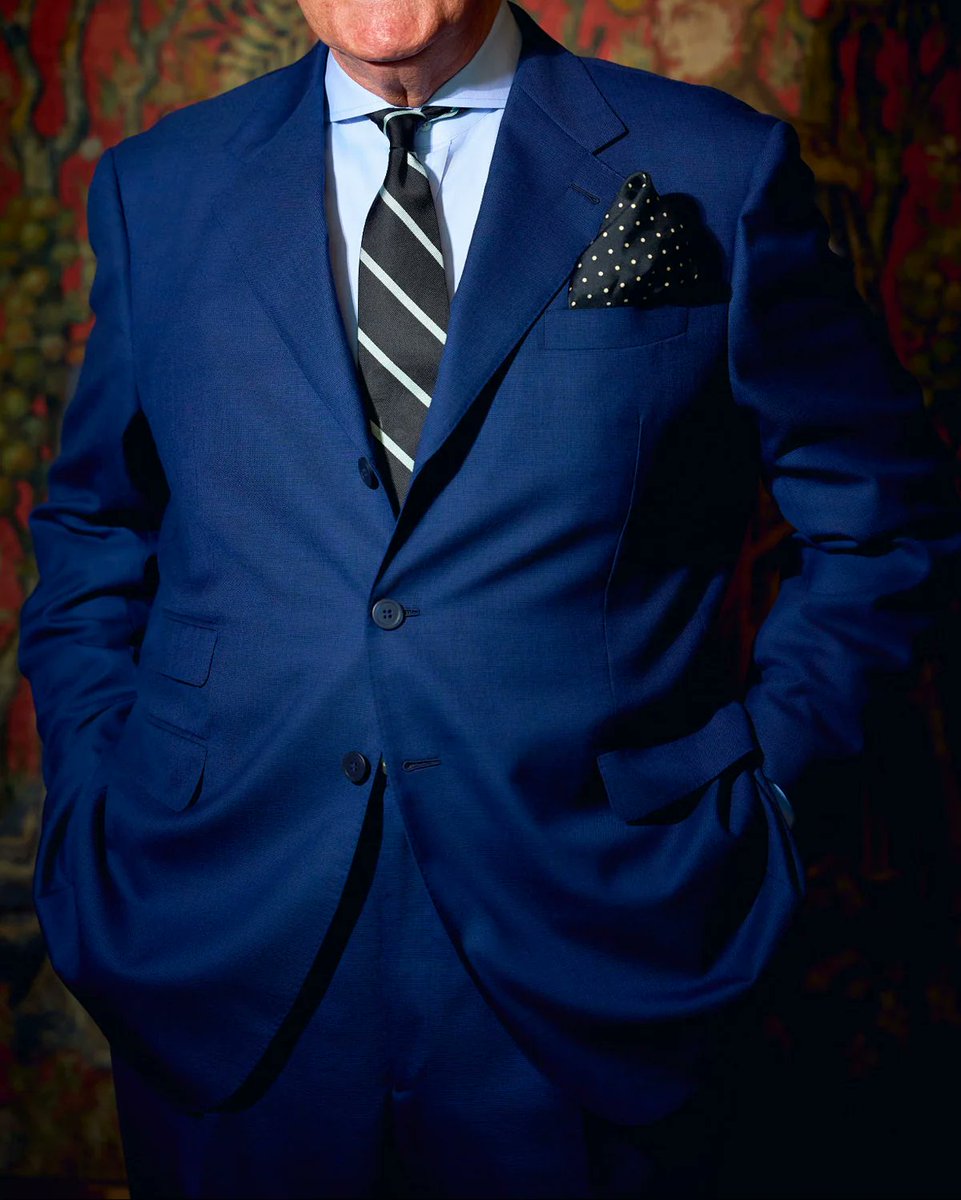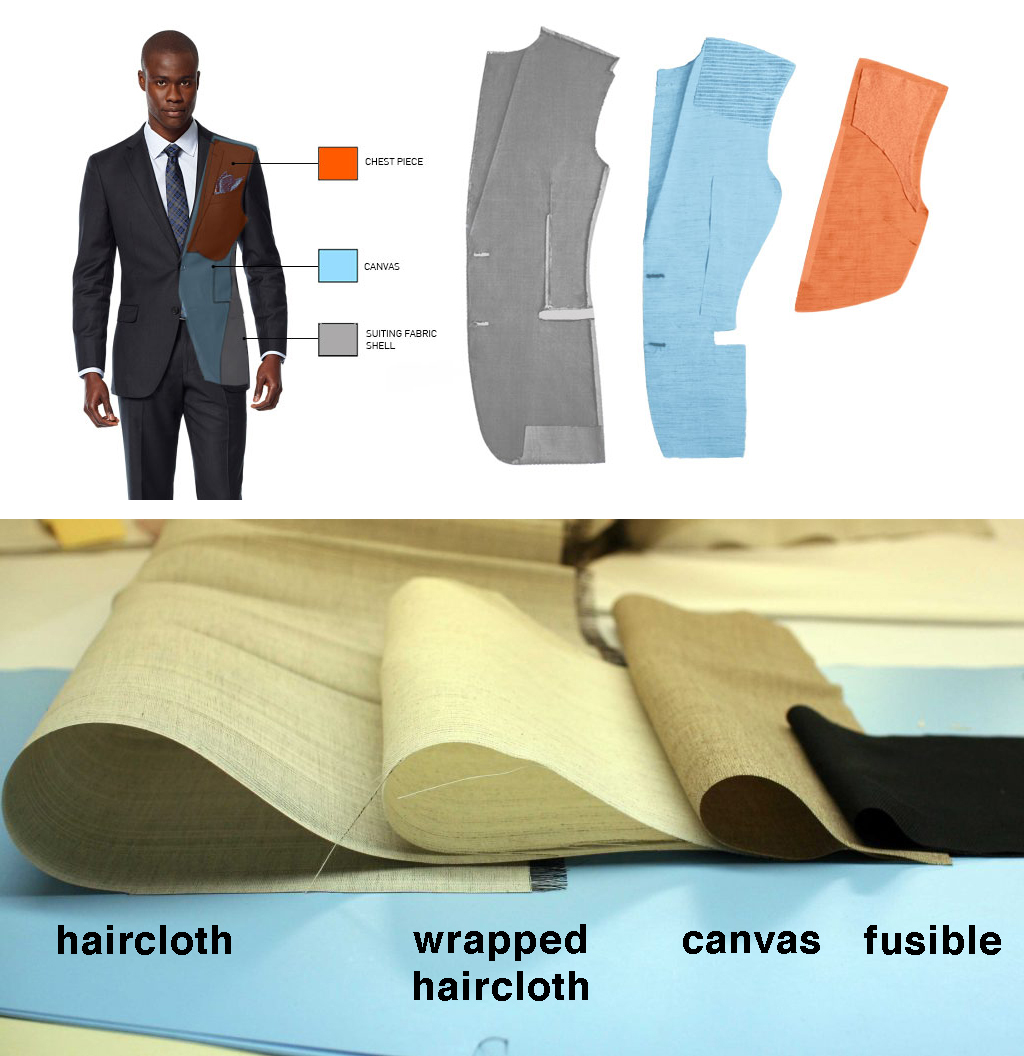WHERE TO BUY HIGH-QUALITY SHOES
Here's the follow-up to yesterday's thread on how to spot quality men's footwear. This thread is about where to buy such footwear. 🧵
Here's the follow-up to yesterday's thread on how to spot quality men's footwear. This thread is about where to buy such footwear. 🧵
https://twitter.com/dieworkwear/status/1691744425909875021
If you know a little something about how shoes are made, and you have some experience with high-quality footwear, you can spot quality shoes in a store. However, for most people, this can be challenging. Quality often reveals itself over time, as bad shoes fall apart.
For instance, a mark of good quality is how the leather ages over time. Good leather develops a patina; bad leather is more prone to cracking, flaking, and just general ugliness. When shoes are ugly, you end up throwing them away after a few years and buying something new.





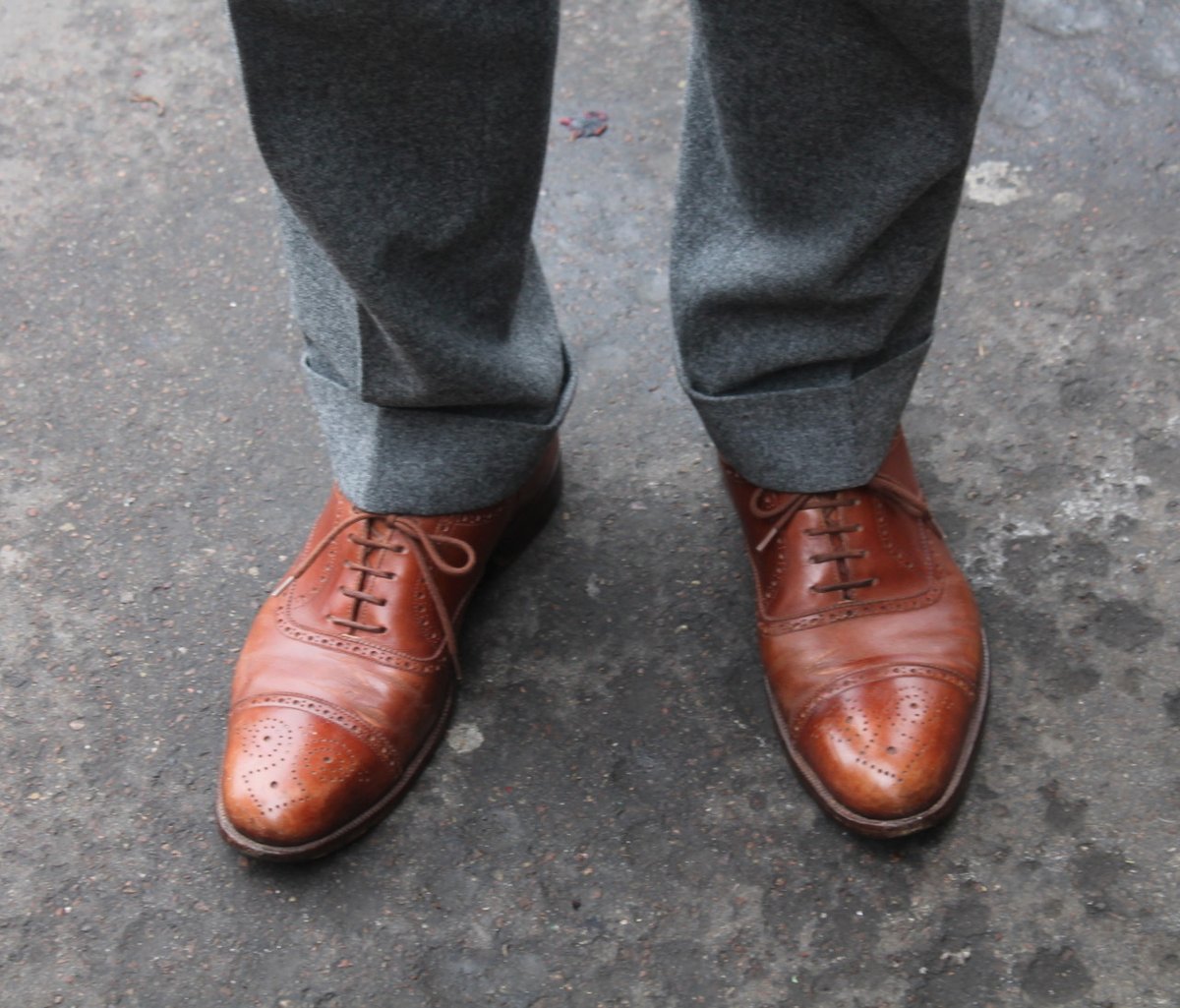


When shoes age well, and have been made in a way so they're easy to resole, you end up keeping them for a very long time. Here are King Charles' decades-old oxfords. Notice how the uppers have been patched, and the soles have been replaced. Many ppl keep such shoes for 15+ yrs. 

Some shoes are also made with special techniques that lend certain qualities. These Crockett & Jones Snowdon boots have been made with a Veldtschoen construction and waxed leather uppers. They are so waterproof, a friend uses them as his fishing boots. He even wades in them!








For most people, the problem is that they won't know how shoes will age until they've owned them for a long time. Price and designer name are no guarantee of quality. In fact, designer brands typically use things like corrected-grain leather, rather than full-grain.
So in this guide, I'll list some companies that produce shoes according to 2 qualities: full-grain leather uppers and some sort of stitched-on sole. This means the uppers will age well, and you can resole the shoes more easily, rather than throwing them away when soles wear down.
ALLEN EDMONDS
Classic American brand with many stores across the US, which makes them easier to try on. However, since Caleres acquired them in 2016, some of the designs have become iffy. Stick to the classics, like the Park Avenues, Strand, and Grayson.
https://t.co/j39sgXTHYZallenedmonds.com


Classic American brand with many stores across the US, which makes them easier to try on. However, since Caleres acquired them in 2016, some of the designs have become iffy. Stick to the classics, like the Park Avenues, Strand, and Grayson.
https://t.co/j39sgXTHYZallenedmonds.com

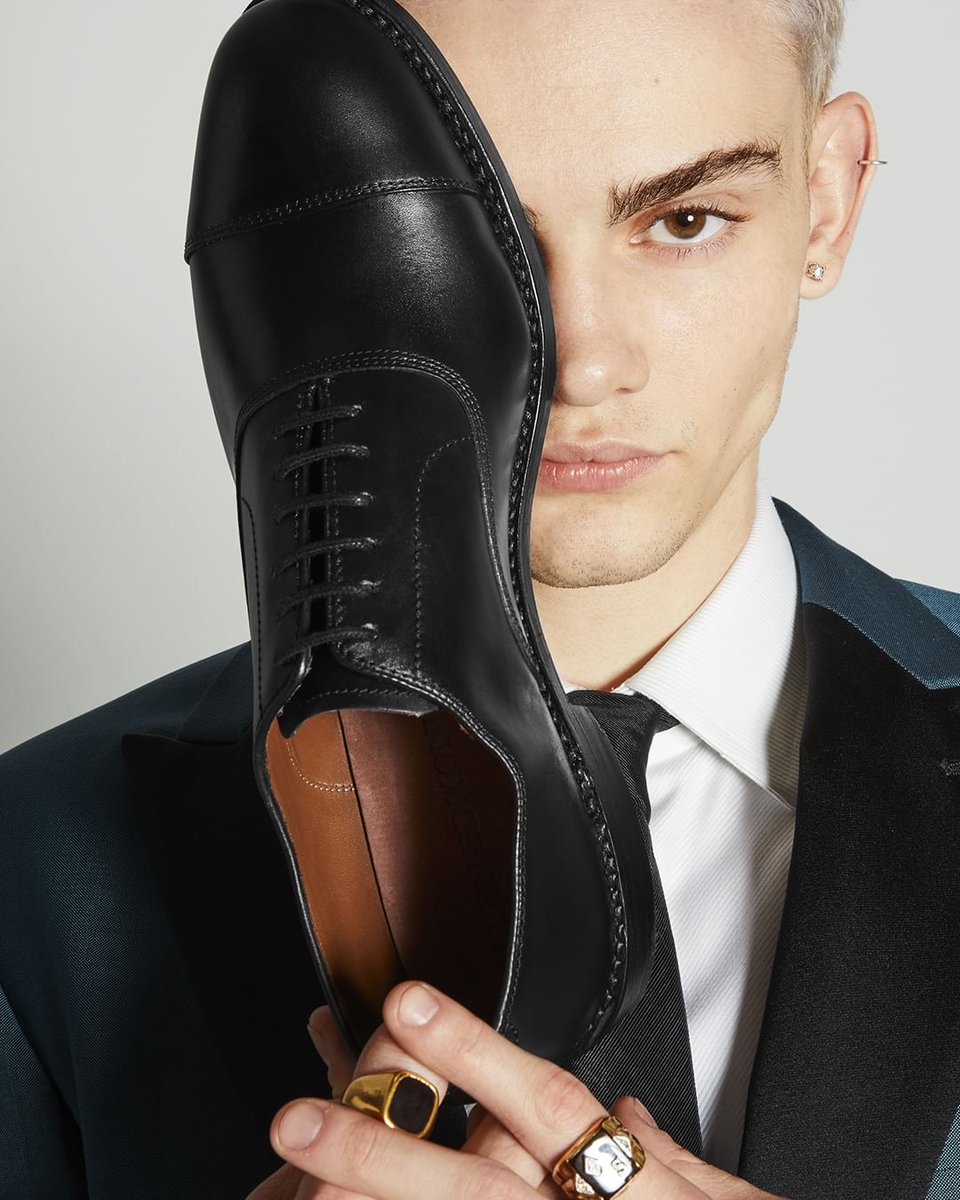
GRANT STONE
A relatively new brand producing quality, Goodyear welted shoes in styles that take after American brands. Designs feel a bit like Alden, but they're available at a more affordable price point.
https://t.co/XkdaeWUCezgrantstoneshoes.com


A relatively new brand producing quality, Goodyear welted shoes in styles that take after American brands. Designs feel a bit like Alden, but they're available at a more affordable price point.
https://t.co/XkdaeWUCezgrantstoneshoes.com


LOF & TUNG
An in-house brand made by one of the best high-end footwear stores in the world. Shoes are Goodyear welted, made in Spain, and tastefully designed. The people at this shop are very good at giving sizing advice over the Internet.
https://t.co/gYcTTuAxpUskoaktiebolaget.com/collections/lo…

An in-house brand made by one of the best high-end footwear stores in the world. Shoes are Goodyear welted, made in Spain, and tastefully designed. The people at this shop are very good at giving sizing advice over the Internet.
https://t.co/gYcTTuAxpUskoaktiebolaget.com/collections/lo…

QUODDY AND RANCOURT
Both of these companies produce classic made-in-Maine moccasins using full-grain leather and handsewn aprons. They have camp mocs, penny loafers, boat shoes, and some boots. Shoes pair well with Americana
https://t.co/rrbAfDOPHY https://t.co/CmflVFXfDNquoddy.com
rancourtandcompany.com


Both of these companies produce classic made-in-Maine moccasins using full-grain leather and handsewn aprons. They have camp mocs, penny loafers, boat shoes, and some boots. Shoes pair well with Americana
https://t.co/rrbAfDOPHY https://t.co/CmflVFXfDNquoddy.com
rancourtandcompany.com


JAY BUTLER
Summer loafers made with a Blake-stitch construction, rather than Goodyear welt. That means they're less waterproof, but they're lighter and more flexible. They have horsebits and beefroll penny loafers that are better made than Bass Weejuns
https://t.co/WUvLUSDGBRjaybutler.com


Summer loafers made with a Blake-stitch construction, rather than Goodyear welt. That means they're less waterproof, but they're lighter and more flexible. They have horsebits and beefroll penny loafers that are better made than Bass Weejuns
https://t.co/WUvLUSDGBRjaybutler.com


MEERMIN
One of the best sources for ~$200 shoes, partly because they have such a huge catalog full of tasteful designs. Run by a family with decades of experience in the footwear industry. Downside: the soles are a bit stiff at first, so break in slowly
https://t.co/EH6tbQlkA7meermin.com


One of the best sources for ~$200 shoes, partly because they have such a huge catalog full of tasteful designs. Run by a family with decades of experience in the footwear industry. Downside: the soles are a bit stiff at first, so break in slowly
https://t.co/EH6tbQlkA7meermin.com


CARMINA
The brands above range from $200-300. We now get into slightly more expensive shoes, ranging from $300-500. Like Meermin, Carmina has a huge catalog of tasteful designs. Their horsebits are just as well-made as Gucci's, but cost half the price.
https://t.co/MmfDIipBYhcarminashoemaker.com/en


The brands above range from $200-300. We now get into slightly more expensive shoes, ranging from $300-500. Like Meermin, Carmina has a huge catalog of tasteful designs. Their horsebits are just as well-made as Gucci's, but cost half the price.
https://t.co/MmfDIipBYhcarminashoemaker.com/en


MORJAS
Classic shoes aimed at a slightly younger crowd. They have things like oxfords, but also unlined penny loafers (softer, more comfy), hiking boots, and on-trend spectator slip-ons. Goodyear welt means these are better made than most "fashion" shoes
https://t.co/LRMPV4Yr9Zmorjas.com


Classic shoes aimed at a slightly younger crowd. They have things like oxfords, but also unlined penny loafers (softer, more comfy), hiking boots, and on-trend spectator slip-ons. Goodyear welt means these are better made than most "fashion" shoes
https://t.co/LRMPV4Yr9Zmorjas.com


BLACKSTOCK & WEBER
Made for the "post sneaker" crowd, these chunky loafers look less dressy than their fine dress shoe counterparts. Like Morjas, Blackstock & Weber is one of the few companies combining a younger aesthetic with traditional quality.
https://t.co/GUBN3er0VSblackstockandweber.com


Made for the "post sneaker" crowd, these chunky loafers look less dressy than their fine dress shoe counterparts. Like Morjas, Blackstock & Weber is one of the few companies combining a younger aesthetic with traditional quality.
https://t.co/GUBN3er0VSblackstockandweber.com


TLB MALLORCA
If you want sleeker, more streamlined designs, TLB Mallorca is one of the best values. These are Goodyear welted shoes made with channel stitching, which means a thin piece of leather covers the sole, hiding the stitching. Also curved waist
https://t.co/egZpL206Uxtlbmallorca.com


If you want sleeker, more streamlined designs, TLB Mallorca is one of the best values. These are Goodyear welted shoes made with channel stitching, which means a thin piece of leather covers the sole, hiding the stitching. Also curved waist
https://t.co/egZpL206Uxtlbmallorca.com
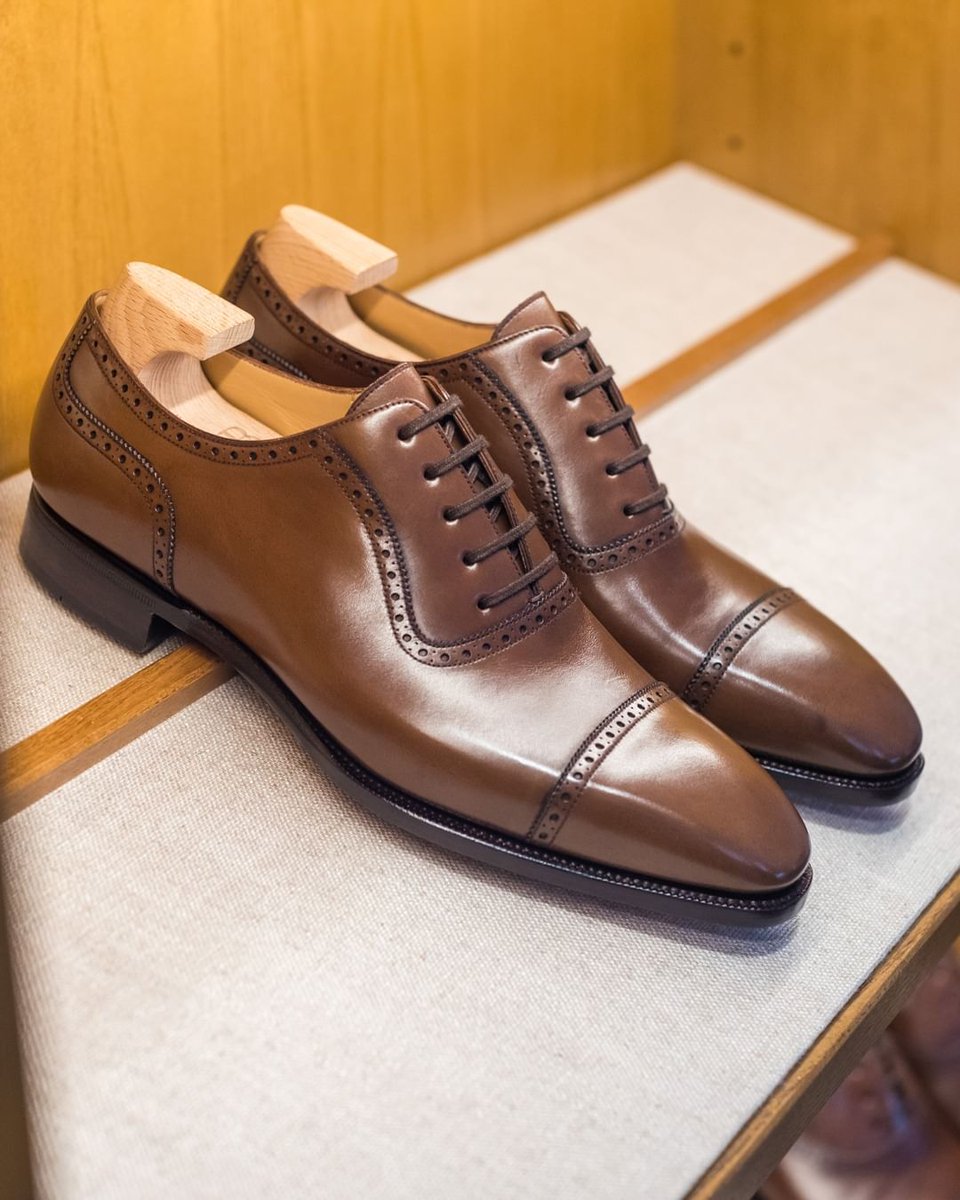

TRUMAN BOOTS
For guys who are into workwear. These boots are easier to break in than Red Wing, more affordable than Viberg, and more stylish than Chippewa. Made in Oregon, these are the sort of things you wear with raw denim and heavy flannel shirts.
https://t.co/bvpldk5d9ktrumanboot.com


For guys who are into workwear. These boots are easier to break in than Red Wing, more affordable than Viberg, and more stylish than Chippewa. Made in Oregon, these are the sort of things you wear with raw denim and heavy flannel shirts.
https://t.co/bvpldk5d9ktrumanboot.com


LOAKE 1880
For friends in Europe, Loake is one of the better "entry-level" brands for this class of footwear. Goodyear welted, full-grain leather, classic designs, and made in Northamptonshire. Stick to their higher-tier 1880 range.
https://t.co/EDDtxLFUDBloake.com/collection/188…


For friends in Europe, Loake is one of the better "entry-level" brands for this class of footwear. Goodyear welted, full-grain leather, classic designs, and made in Northamptonshire. Stick to their higher-tier 1880 range.
https://t.co/EDDtxLFUDBloake.com/collection/188…


VASS
The only company on this list that sells handwelted shoes. Handwelting is more durable than Goodyear welting bc it doesn't have gemming, a canvas rib that can break down. This means you can resole them more often.
https://t.co/F7zlxiZXnavass-shoes.com


The only company on this list that sells handwelted shoes. Handwelting is more durable than Goodyear welting bc it doesn't have gemming, a canvas rib that can break down. This means you can resole them more often.
https://t.co/F7zlxiZXnavass-shoes.com


ALDEN
I won't spend too much time on shoes that cost over $500, but Alden is worth a mention bc their designs ae so classic and the shoes well-made. Their Indy boot, Leisure Handsewn, tassel loafer, and unlined chukkas are all worth a look. Made in USA
https://t.co/lQ7G7jB58haldenshoe.com

I won't spend too much time on shoes that cost over $500, but Alden is worth a mention bc their designs ae so classic and the shoes well-made. Their Indy boot, Leisure Handsewn, tassel loafer, and unlined chukkas are all worth a look. Made in USA
https://t.co/lQ7G7jB58haldenshoe.com

CROCKETT & JONES
The other big, $500+ brand worth mentioning. Very tasteful British-made shoes. Huge catalog with everything from rugged waterproof boots to fine dress shoes. A wide range of lasts means most guys can find something here that fits them.
https://t.co/OGUYurKTuPus.crockettandjones.com


The other big, $500+ brand worth mentioning. Very tasteful British-made shoes. Huge catalog with everything from rugged waterproof boots to fine dress shoes. A wide range of lasts means most guys can find something here that fits them.
https://t.co/OGUYurKTuPus.crockettandjones.com


WILL'S VEGAN STORE
Vegan shoes won't age like the shoes above. They're typically made from PU leather and have glued-on soles. However, I want to give an option for vegan friends. Will's designs are better than most.
https://t.co/y74XiTIjaRwills-vegan-store.com


Vegan shoes won't age like the shoes above. They're typically made from PU leather and have glued-on soles. However, I want to give an option for vegan friends. Will's designs are better than most.
https://t.co/y74XiTIjaRwills-vegan-store.com
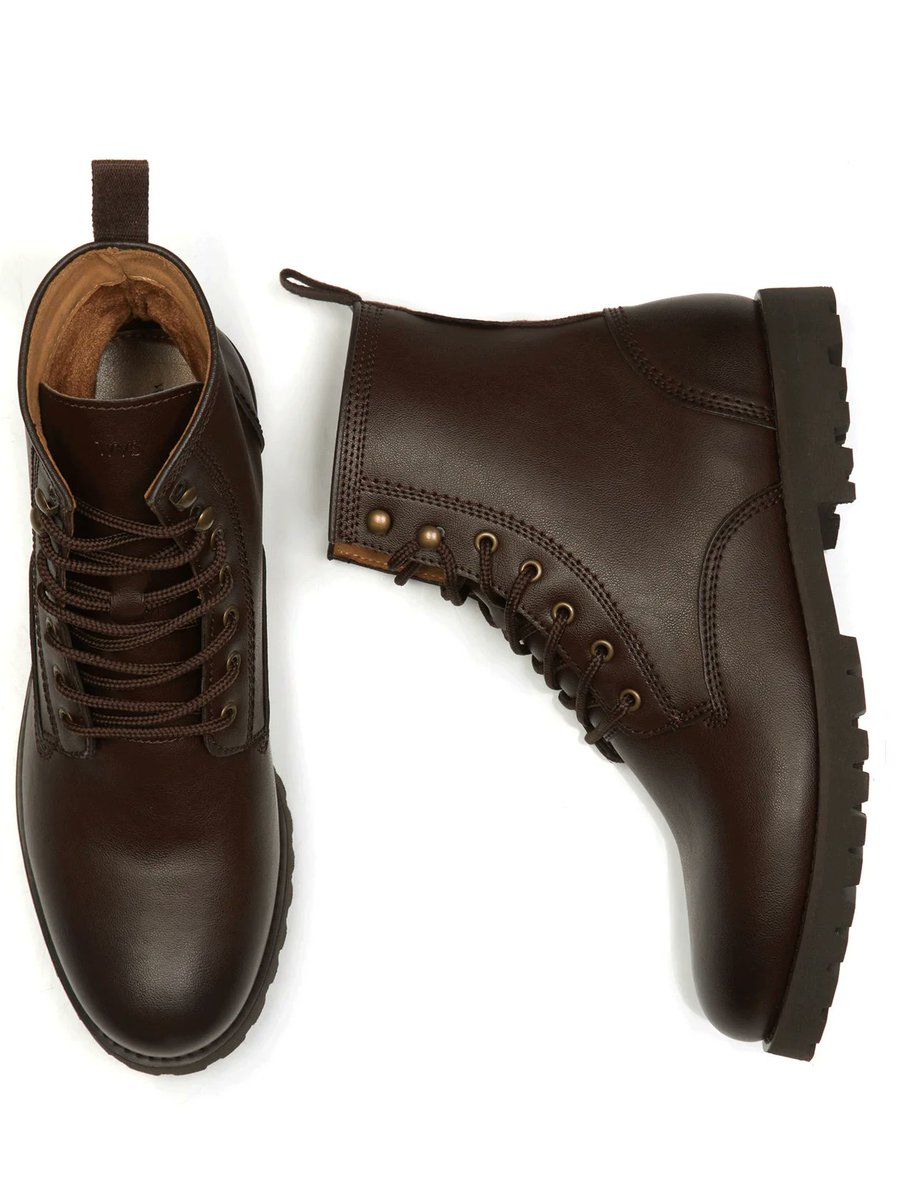

BEST PRACTICES
If possible, buy at least two pairs of shoes and rotate through them. This gives each pair a day to dry (sweat from your feet can break down the leather). Also, insert shoe trees when they're not being worn. Treat them with leather conditioner when they feel dry.
If possible, buy at least two pairs of shoes and rotate through them. This gives each pair a day to dry (sweat from your feet can break down the leather). Also, insert shoe trees when they're not being worn. Treat them with leather conditioner when they feel dry.

Finally, learn how shoes should fit and figure out your actual shoe size. This is not always your sneaker size, as sneakers are soft and cushy. The thread below covers some of this in detail.
Buy less, buy better, etc.
Buy less, buy better, etc.
https://twitter.com/dieworkwear/status/1670555618678284289
• • •
Missing some Tweet in this thread? You can try to
force a refresh


